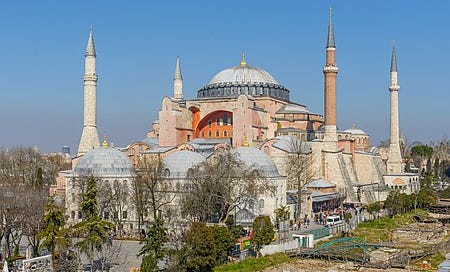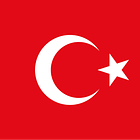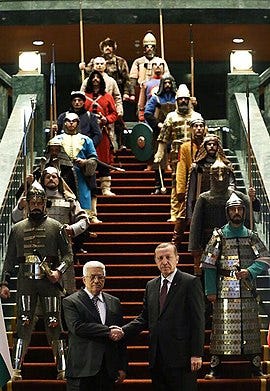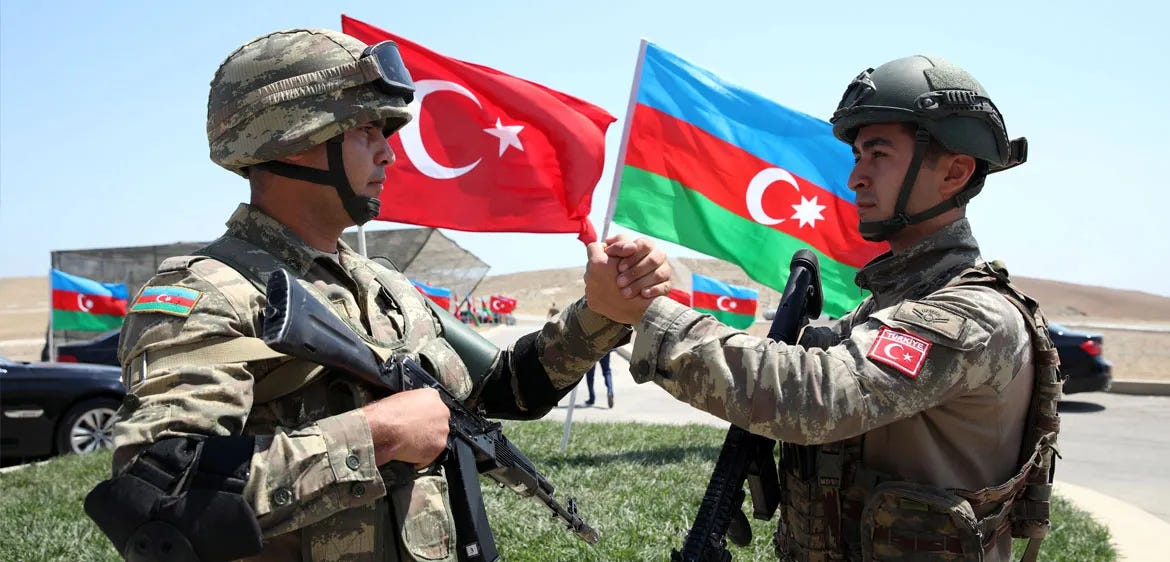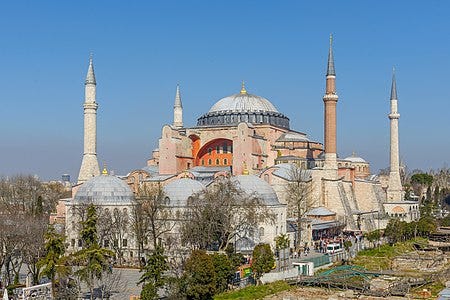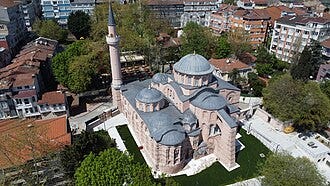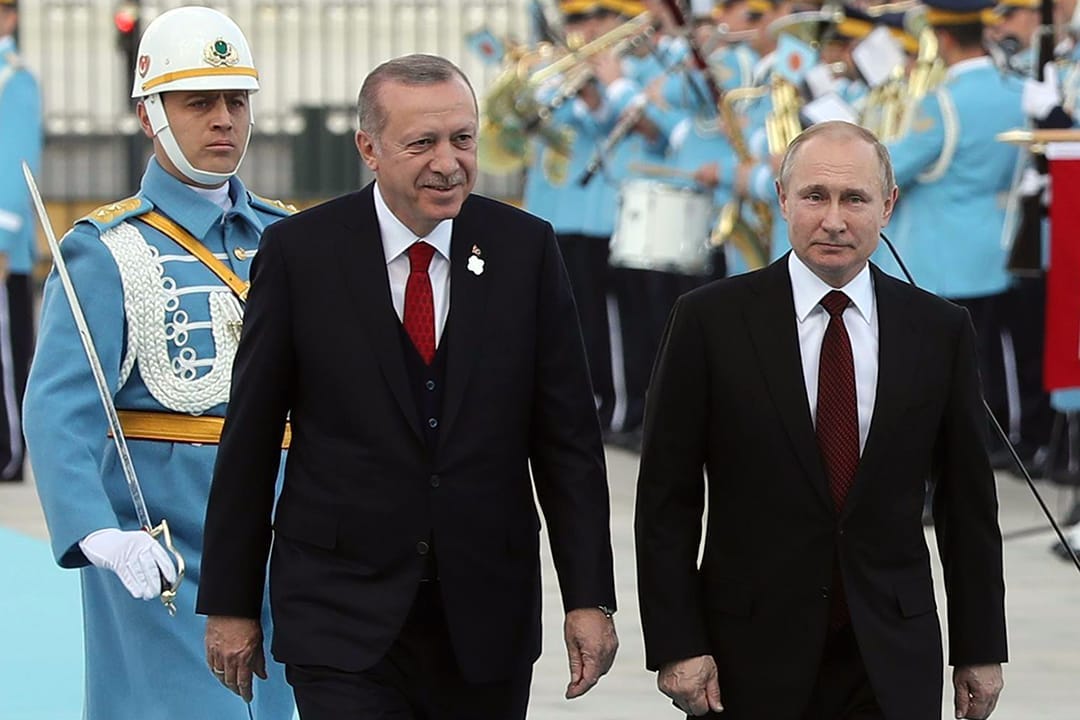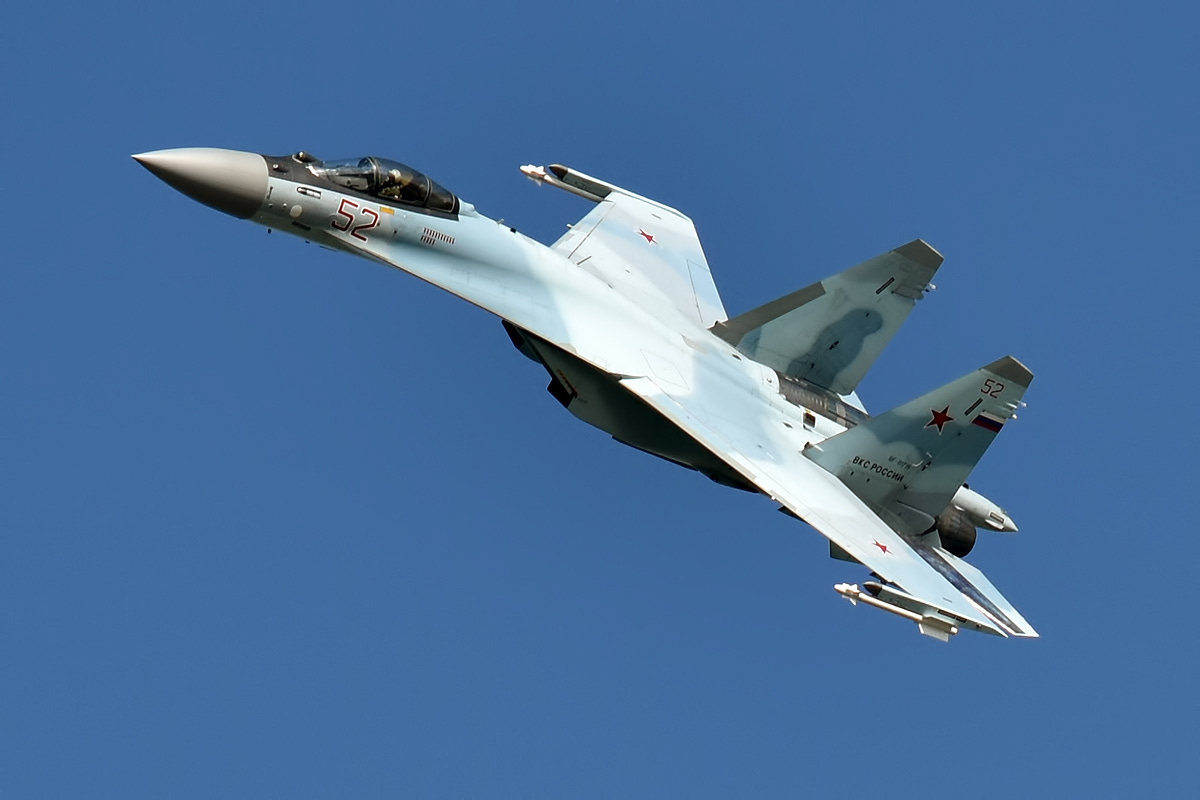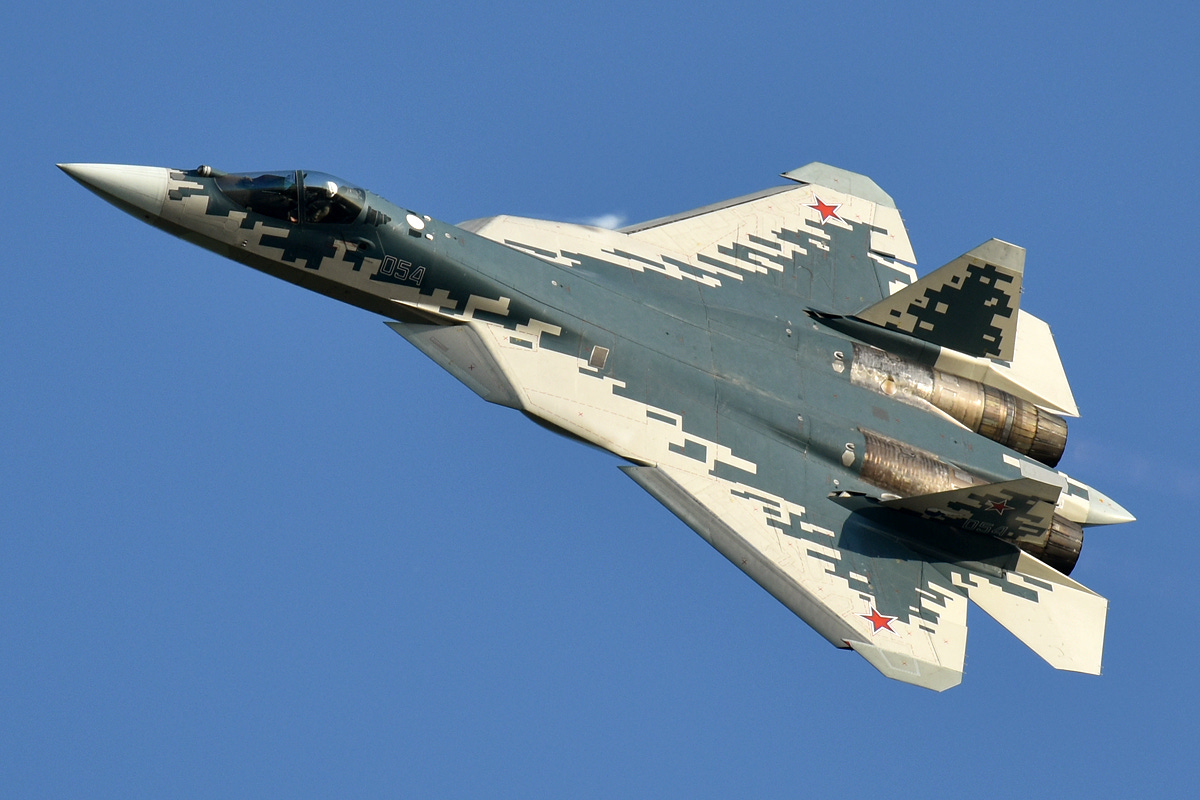It's Time to Talk About Turkey Part II
Can Turkey still be considered a democratic country or are they essentially a Muslim dictatorship?
Last time I began my look at Turkey and how they are acting more like an Islamic dictatorship, than a normal western nation and member of NATO. click below if you missed it.
Today I will finish my examination of modern Turkey and their place in NATO going forward.
Turkey and the move towards Ottomanism
Erdogan and his AKP has overseen a revival of Ottoman tradition, like greeting Palestinian Authority president Mahmoud Abbas with an with an Ottoman-style ceremony. Complete with guards dressed in costumes representing the founders of the 16 Great Turkish Empires. When he was prime minister, Erdogan’s party made references to the Ottoman era during election campaigns, by calling their supporters 'grandsons of Ottomans'.
This proved controversial, since it was perceived to be an open attack against the republican nature of modern Turkey as founded by Mustafa Kamel Ataturk. In 2015, Erdogan made a statement in which he endorsed the old Ottoman term kulliye to refer to university campuses rather than the standard Turkish word kampus. Therefore many critics have accused Erdogan of having Ottoman aspersions, to the point that many believe he wishes to become a sultan and abandon the secular and democratic nature of the republic. To rephrase it, Erdogan wants to create an Ottoman Caliphate and name himself the Caliph. There are other examples of Turkey behaving like their Ottoman forefathers.
In March 2018, the Prime Minister of Kosovo, Ramush Haradinaj, dismissing his Interior Minister and Intelligence Chief for failing to inform him of an unauthorized and illegal, secret operation conducted by Turkey’s National Intelligence Organization inside Kosovo. Ramush said “The operation was conducted without informing me, or requesting my permission as Prime Minister.” That operation led to the arrest of six people allegedly associated with the Gulen movement. Turkey accuses Gulen, a Turkish preacher who has lived in self-imposed exile in the US since 1999, of orchestrating the failed coup in 2016. It describes his supporters as the “Fethullahist Terrorist Organisation” or “FETO”. In response to the firing, Erdogan criticized Ramush, saying “It is a historic mistake to fire the intelligence agency head and interior minister who gave us members of the ‘FETO’ terrorist organization. They only carried out their duties. When did Kosovo started to protect those who plotted a coup in Turkey?” “The Kosovo PM protects FETO terrorists on someone else’s orders but my Kosovar brothers will punish him. Turkey cannot be beaten by dirty alliances and such political games, the operation in Kosovo was not the first time and will not be the last,”
One can see how Erdogan is quickly moving in the direction of Pan-Islamist or Neo-Ottoman, policies and advocating for a revival of Ottoman culture and even a return to Ottoman hegemony in the Eastern Europe and the Middle East, when you look at the “special relationship” that Turkey has with Azerbaijan. Azerbaijan is the only other country on the western side of the Caspian Sea comprised of a majority of Turkic people. In fact Azerbaijan has the second largest population of Turkic people after Turkey. Both countries are founding members of the Organization of Turkic States (OTS) and both President Erdogan and Azeri president Ilham Aliyev have repeatedly used the motto of “One nation, two states”.
They have a common enemy, or at least a common problem with Armenia. There have been multiple conflicts, mostly over the disputed region of Nagorno-Karabakh. There is a possibility, however remote, that either Turkey or Azerbaijan, or both could move militarily against Armenia to solve their problems, once and for all. There is the continuing denial by Turkey of the Armenian Genocide (1915-1917) where up to 1.5 million Armenians were killed. Turkey is very touchy about this issue. For example, on April 24, 2019, President Erdogan tweeted, "The relocation of the Armenian gangs and their supporters, was the most reasonable action that could be taken in such a period". To this day, even though 34 countries as well as the Pope, the UN and many other organizations have recognized that a genocide took place, Turkey and Azerbaijan refuse to accept that anything at all took place, they say that the Armenians were killed in “inter-tribal violence”.
Also since 1988, Armenians and Azeris have been involved in a conflict over Nagorno-Karabakh, an Armenian enclave internationally recognized as part of Azerbaijan. Initially involving peaceful demonstrations by Armenians, the conflict turned violent and has featured massacres by both sides, resulting in the displacement of more than half a million people. During the conflict, the Azerbaijani and Armenian governments have regularly accused each other of plotting genocide.
In September 2023, Azerbaijan launched a large-scale military offensive against the self-declared breakaway state of Artsakh, to recapture the Armenian-populated region of Nagorno-Karabakh. Addressing the United Nations General Assembly, Erdogan stated “As everyone now acknowledges, Karabakh is Azerbaijani territory. Imposition of another status [to the region] will never be accepted. Turkey supports the steps taken by Azerbaijan, with whom we act together with the motto of one nation, two states, to defend its territorial integrity.”
Turkey and the move towards Islamism
Besides the movement of the Erdogan and the AKP towards a neo-Ottoman foreign policy, there is also a concerted effort to erode the secular nature of the Turkish government and place Islam in a more central role in government policies. A prime example of this was the July 10, 2020, decision by the Council of State (the highest administrative court in Turkey), that the Hagia Sophia should be named a mosque.
The Hagia Sophia, which is a UNESCO World Heritage Site, was the last of three church buildings to be erected on the site by the Byzantine Empire. The first church was completed in 360 AD and the Hagia Sophia was completed in 537 AD. Therefore it was a Greek Orthodox church from 360 AD to 1453. After the fall of Constantinople in 1453, it was reopened as a mosque and it remained a mosque until 1931 when it was closed for four years. In 1935 Mustafa Kemal Ataturk, in a move to solidify Turkish secularism, transformed the mosque into a museum. It had been the second most popular museum in Turkey drawing over 3.3 million visitors annually.
While use of the complex as a place of worship (mosque or church) was strictly prohibited, in 1991 the Turkish government allowed the allocation of a pavilion in the museum complex for use as a prayer room, and since 2013, two of the museum's minarets have regularly been used for the call to prayer. In November 2013, Turkey's deputy prime minister Bulent Arinc, demanded the Hagia Sophia be converted back into a mosque. In 2015, After Pope Francis publicly acknowledged the Armenian genocide, Mufti of Ankara, Mefail Hızlı, said he believed the Pope's remarks would accelerate the conversion of Hagia Sophia into a mosque.
On July 1, 2016, Muslim prayers were held in the Hagia Sophia for the first time in 85 years. That November, a Turkish NGO, the Association for the Protection of Historic Monuments and the Environment, filed a lawsuit for converting the museum into a mosque. The court decided it should stay as a 'monument museum'. However, in October 2016, Turkey's Director of Religious Affairs appointed, Onder Soy, as the Imam of the Hagia Sophia, the first time an Imam had been appointed in 81 years. Since then, the call to prayer has been heard five times a day from all four of the Hagia Sophia's minarets.
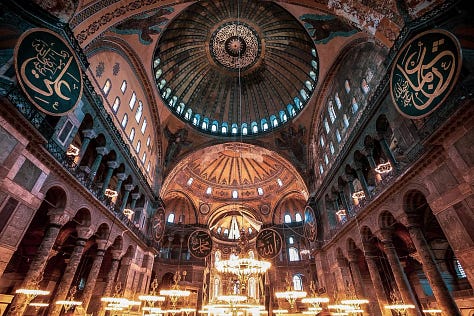
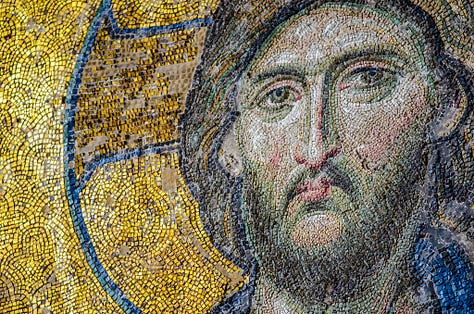
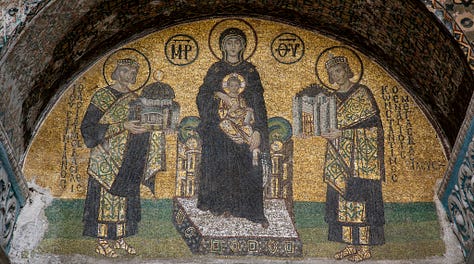
On May 13, 2017, a large group of people, organized by the Anatolia Youth Association (AGD), gathered in front of Hagia Sophia and recited the morning prayer along with a call for the re-conversion of the museum into a mosque. On June 21 of that year, the Directorate of Religious Affairs organized a special program, broadcast live by state-run television, to mark Laylat al-Qadr (the night that Muhammad received the first revelation of verses of the Quran), which included the recitation of the Quran and prayers in Hagia Sophia.
Since 2018, President Erdogan has talked of changing the status of the Hagia Sophia back to a mosque, a very popular move among the religious populace whom Erdogan was attempting to court. On March 31, 2018, Erdogan recited the first verse of the Quran in the Hagia Sophia, dedicating the prayer to the "souls of all who left us this work as inheritance, especially Istanbul's conqueror”, (Mehmed II). On May 29, 2020, Turkey's government celebrated the 567th anniversary of the Conquest of Constantinople with an Islamic prayer in Hagia Sophia. Erdogan said during televised broadcast “Al-Fath (Titled “The Victory” it is the 48th chapter of the Quran), will be recited and prayers will be done at Hagia Sophia as part of the conquest festival".
On July 17, after he signed the law to make the Hagia Sophia a mosque, Erdogan announced that the first prayers in the Hagia Sophia would be open to between 1,000 and 1,500 worshippers. He said that Turkey had sovereign power over Hagia Sophia and was not obligated to bend to international opinion. It was decided to cover the Christian mosaics with sheets while services are going on.
This re-designation, which was done without any discussion with UNESCO, is very controversial, invoking condemnation from the Turkish opposition parties, the World Council of Churches, the Holy See, many international leaders and of course UNESCO. While the Hagia Sophia has now been re-consacreated as a mosque, it remains open for visitors outside of prayer times. At the beginning the entrance was free, but the Turkish government decided that, starting on January 15, 2024, non-Muslims will have to pay an entrance fee. In August 2020, he also signed the order that transferred the administration of the Chora Church to the Directorate of Religious Affairs to open it for worship as a mosque. The Chora Church was originally built by Constantine the Great, in the early 4th century, as part of a monastery complex outside the city walls of Constantinople to the south of the Golden Horn. These two buildings were the third and fourth former churches that have been turned into mosques under Erdogan's rule.
Also in August 2020, Erdogan gave a speech saying that "in our civilization, conquest is not occupation or looting. It is establishing the dominance of the justice that Allah commanded in the region. First of all, our nation removed the oppression from the areas that it conquered. It established justice, this is why our civilization is one of conquest. Turkey will take what is it’s right in the Mediterranean Sea, in the Aegean Sea, and in the Black Sea.” In October 2020, he made a statement before the Grand National Assembly that “Jerusalem is ours”, referring to the period of Ottoman rule over the city (1516 to 1917), and the rebuilding of the Old City by Suleiman the Magnificent in 1535.
Turkey and Russia
The main reason Turkey was invited to join NATO was as a deterrence against the Soviet Union having a direct route into the Mediterranean Sea through the Bosphorus Strait. In 1991 with the dissolution of the USSR, the main reason for Turkey’s membership in NATO was removed. However, with the rise of Vladimir Putin and his increasing efforts to re-establish some form of the Soviet Union, the need to block Russia at the Bosphorus has returned. On the other hand, the relationship between Ankara and Moscow is less of an adversarial one and more of a budding alliance.
The first meeting between Recep Erdogan and Vladimir Putin was in May of 2009 when both were Prime Ministers. When both men agreed that “Turkey and Russia have responsibilities in the region. We have to take steps for the peace and well-being of the region. This includes the Nagorno-Karabakh problem, the Middle East dispute and the Cyprus problem.” There have been bumps in the road, such as in 2015 when a Turkish F-16 jet shot down a Russian jet over the Turkish-Syrian border during the ongoing Turkish involvement in Syria, the Russian annexation of Crimea and the invasion of Ukraine. Nevertheless, the relations between the two countries remains strong and they cooperate in many different ways.
Turkey imports more than half of it’s natural gas from Russia and the two countries have a 518 mile-long gas pipeline that moves liquefied natural gas (LNG) from Russian gas fields into Turkey. Erdogan and Putin have planned for Turkey to become an energy hub for all of Europe. According to Aura Sabaduș, a senior energy journalist focusing on the Black Sea region, "Turkey would accumulate gas from various producers — Russia, Iran, Azerbaijan, and its own Black Sea gas — and then launder it like mob money, and relabel it all as Turkish gas. European buyers wouldn’t know the origin of the gas they purchased." Thereby circumventing the criticisms from the US for buying Russian gas.
There is also significant cooperation between the two countries militarily. On September 12, 2017, Turkey announced that it had signed a deal to purchase the Russian SA-21 Growler surface-to-air missile system. The deal was characterised by the American press as ″the clearest sign of Erdogan′s pivot toward Russia and away from NATO and the West" that ″cements a recent rapprochement with Russia″. Despite pressure to cancel the deal on the part of the Trump Administration, the scheduled delivery of the SA-21 batteries had been moved up from 2020 to 2019.
In September 2019, Russia sent the Sukhoi Su-35S and the 5th generation stealth fighter Su-57 to Turkey for Technofest Istanbul 2019. This visit, by the two most advanced Russian fighter aircraft came just weeks after President Erdogan visited Moscow to discuss possibly buying Russian advanced fighters.
In 2024, the United States warned Turkey of potential consequences if it did not reduce exports of US products linked to military hardware, critical for the Russian war effort, to Russia. Assistant Commerce Secretary Matthew Axelrod met Turkish officials in an attempt to kill the deal, emphasizing the need to curb the flow of American components to the Russia's military. The issue strained NATO relations, as Turkey has increased trade with Russia despite the US and EU sanctions since the 2022 Russian invasion of Ukraine. Axelrod urged Turkey to enforce a ban on trans-shipping US items to Russia, warning that Moscow was exploiting Turkey's trade policy. Despite a rise in Turkey's exports of military-linked goods to Russia and intermediaries, there was no corresponding increase in reported imports in those destinations, suggesting a "ghost trade."
At the same time, Turkey has been boosting its presence in the Black Sea. On January 11, Turkish Defense Minister Yasar Guler inaugurated a joint naval operation with Romania and Bulgaria. All three countries will deploy minesweepers, patrol vessels, helicopters, and drones to clear sea lanes of stray mines, which have been a problem since the start of the fighting in Ukraine. The Mine Countermeasures Group in the Black Sea is theoretically open to other NATO members, though Turkey has been scrupulous about enforcing international rules that ban military ships from non–Black Sea countries from passing through the Bosphorus in wartime.
Foreign policy has always been a sticking point, however, with persistent disagreements over Syria, Libya, and the disputed South Caucasus region of Nagorno-Karabakh. Still, Russia and Turkey have managed to avoid open confrontation. Now, with the flare-up in the Israel-Palestine conflict, they find themselves in the same camp, something that has never been the case on any other major international issue.
While their stances may be similar, their motivations are very different. When Russia’s UN ambassador, Vasily Nebenzya, says that as an occupying power, Israel has no right to defend itself, he’s attempting to portray Russia as one of the leaders of the so-called Global South (which has replaced the term 2nd World as opposed to the 1st World). In contrast, Erdogan aspires to lead the Muslim world.
Russia’s open support for Hamas is a relatively recent phenomenon, and a direct consequence of the full-scale invasion of Ukraine. Specifically, the invasion led to a cooling of ties with Israel and warming relations with Iran, a major Hamas sponsor. Before the October 7, attack on Israel, the sight of Hamas delegations in Moscow could have been interpreted as Russia seeking to mediate between Palestinian factions. Now, however, such contacts are perceived very differently by Israel. Secure in its alliance with Iran, Russia is indifferent to Israel.
Erdogan, on the other hand, has long supported Hamas, allowing Hamas fighters to reside in Turkey and giving them Turkish passports. The Turkish president himself emerged from Islamist circles, and backing Hamas is ideologically important for him. In the first days of the current war, Erdogan tried to go back and forth between Israel and Hamas, but soon abandoned that tactic and decided to give his full support to his Palestinian “brothers.”
At the same time, neither country’s interactions with Hamas have been particularly effective. Despite liaising with the group’s leadership, neither Russia nor Turkey has achieved the freeing of any hostages. This contrasts with the more successful efforts of Egypt and Qatar, for example. Nevertheless, their approach allows Russia and Turkey to level repeated criticisms at the West, which is important for their domestic audiences. By accusing the United States of fueling chaos in the Middle East, Putin is shoring up his narrative that the West is the source of all misfortune in Russia and the wider world. In the same way, Erdogan’s criticism of the West for attempting to start a war between Christianity and Islam appeals to strong anti-NATO and anti-western feelings in Turkey.
Turkey and Israel
Turkey used to have excellent ties with Israel, rooted in its 1949 recognition of the Jewish state (for decades, Turkey was Israel’s only Muslim-majority friend). The relationship had also experienced a growth spurt during the 1990s, including a large increase in Israeli tourism to Turkey, various free-trade agreements, high-level visits, and significant intelligence and military cooperation.
However, Turkey has recently been very critical of Israel, while there has always been inflammatory rhetoric between the two countries, this is rising to a new level of vitriol. Long before the current Gaza war, each cycle of combat in Gaza, eroded Turkish goodwill toward Israel, while Ankara’s efforts to help Hamas increasingly angered Jerusalem. As a result, the bilateral relationship has been gradually downgraded from an excellent one to a relationship that is nearly ruptured. The rift widened into a chasm in 2010, after an “international flotilla” of privately owned ships sailed from Turkey with the aim of ending Israel’s blockade against Hamas-controlled Gaza. When Israeli commandos boarded the ships, clashes erupted and eight Turkish citizens were killed, along with one US-Turkish dual national. The two countries then severed their diplomatic relations, which were not fully restored until December 2022, after years of US mediation. In response to the 2014 Israel-Gaza conflict, Erdogan accused Israel of being "more barbaric than Hitler", and conducting “state terrorism “ and attempting genocide against the Palestinians. In 2017, in response to President Donald Trump’s acknowledgement of Jerusalem as the capital of Israel, President Erdogan said that "Jerusalem is a red line for Muslims", indicating that naming Jerusalem as Israel's capital would alienate Palestinians and other Muslims from the city, and repeating his claim that Israel is a “terrorist state”. In April 2019, after Israeli Prime Minister Benjamin Netanyahu said he would annex Israeli settlements in the disputed territories, if he was reelected, Erdogan responded by stating that the West Bank belongs to the Palestinians. Erdogan also condemned the Abraham Accords, saying that Turkey was considering suspending or cutting off diplomatic relations with the signatories.
Erdogan has been one of the most outspoken anti-Israel voices in the world since the October 7, massacre. Not only did Ankara not condemn the terrorist attack, it has been openly hosting and backing Hamas. This is not new for Turkey, which has long backed Hamas. After the Israeli response in Gaza, Erdogan condemned the Israeli attacks, saying they were a violation of human rights. This statement led to accusations of hypocrisy as Turkey was severely bombing Kurdish areas in Turkey and Syria, including civilian targets, at the same time. He said that Israel's attack and blockade of the Gaza Strip was a disproportionate response amounting to a "massacre.” On October 25, 2023, Erdogan said that Hamas wasn't a terrorist organisation, but was a liberation group fighting to protect the Palestinian people and their land. On November 15, 2023, he condemned Israel, once again, as a terrorist state and committing genocide against the Palestinians. He also said that Islamic countries should form an alliance against what he called "the growing threat of expansionism from the Zionist state. The only step that will stop Israeli arrogance, Israeli banditry, and Israeli state terrorism is the alliance of Islamic countries," He said recent steps that Turkey has taken to improve ties with Egypt and Syria are aimed at "forming a line of solidarity against the growing threat of expansionism," which he said also threatened Lebanon and Syria.
In December of 2023, Erdogan made a long post on X, that read “Just as genocidal Hitler ended, so will genocidal Netanyahu. Just as the genocidal Nazis were held accountable, so will those who try to destroy the Palestinians,” the post continued. “Humanity will stand by the Palestinians. You will not be able to destroy the Palestinians. We need to be very strong so that Israel cannot do these ridiculous things to Palestine. Just as we entered Karabakh, just as we entered Libya, we can do something similar to them. International Zionist circles, especially Israel, who want to suppress this righteous voice, are in great alarm,” he wrote. “History ended the same way for all genociders and their supporters.”
On April 9, 2024, Ankara issued a suite of trade restrictions, then banned all import and export activity with Israel on May 2, announcing that the boycott would persist until a “permanent ceasefire and humanitarian aid are secured in Gaza.”
For reasons both political and personal, the July 30, killing of Hamas leader Ismail Haniyeh became a turning point in Turkey’s ties with Israel. In addition to Ankara’s nearly twenty-year relationship with and support for Hamas, President Recep Tayyip Erdogan knew Haniyeh well, treating him like a family member and protege. In fact, Erdogan had just invited Haniyeh to address parliament shortly before his death, exacerbating the shock and embarrassment of his sudden demise. As such, Erdogan has treated the assassination as a personal slight and instructed his bureaucrats to harden the government’s stance toward Israel. Turkish foreign policy decision makers and the broader population will back this shift, since many of them already viewed Israel’s campaign against Hamas as misplaced, ill-executed, and stained by civilian casualties.
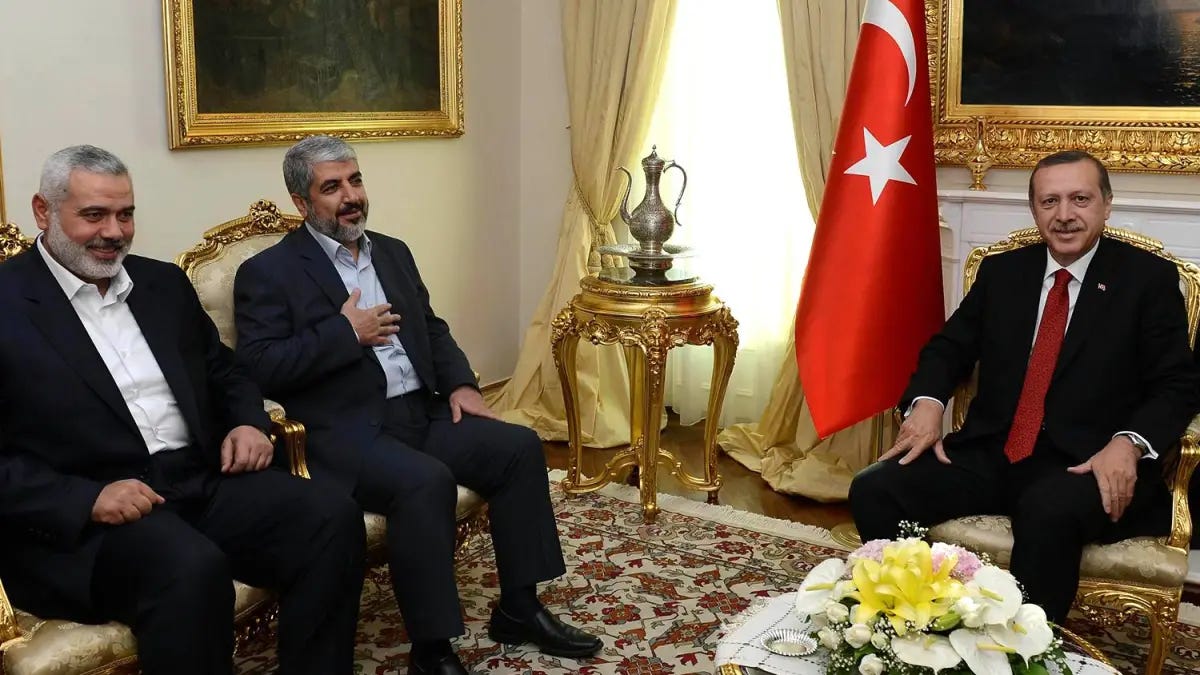
As a first punitive step, Turkey joined South Africa’s International Court of Justice case against Israel on August 7, aiming to prosecute the country for allegedly committing genocide in Gaza. Although Ankara’s ICJ submission avoided a commitment to accept the court’s eventual judgment as binding. The high-profile diplomatic move is a sign that other Turkish measures are forthcoming, with probable implications for US policy and Israel-Turkey relations alike. In addition to joining the ICJ case, Turkey will likely force a full moratorium on NATO cooperation with Israel. The alliance requires unanimous member approval of all decisions, so Ankara has been able to veto various forms of cooperation since the Gaza war began (joint meetings and exercises). Although it has stopped short of a full moratorium and allowed certain symbolic measures to pass (joint statements about the October 7 attack), it may now decide to permanently veto all Israel-related initiates going forward.
Ankara could clamp down further on the May 2, boycott, closing the loophole that has allowed many Turkish companies to use third countries (e.g., Greece) to continue trading with Israel. It could also cut energy flows from its Mediterranean terminal of Ceyhan, where oil brought in from Azerbaijan via pipeline is currently shipped to Israel. Last but not least, Turkey may consider closing its airspace to commercial planes flying to and from Israel.
Other potential actions could prove serious enough to rupture the relationship indefinitely. For example, a new flotilla has been anchored in Istanbul for months awaiting permission to sail to Gaza and undermine Israel’s blockade; Turkey could decide to give it the green light. Given that the Strip is currently an active war zone, Israel would no doubt confront this flotilla militarily, likely resulting in a repeat of the deadly 2010 confrontation or worse. Other “nuclear” options could include hosting Hamas’s top leadership openly and formally or suspending diplomatic ties with Israel.
Erdogan is also moving forward with a number of initiatives designed to rally Muslim countries against Israel. The Islamic offensive that Ankara is undertaking is part of a broader goal to be seen as a world leader for Islamic issues. For instance, Turkey has sought to embrace other “Islamic” causes. It has incited against France and other European countries over issues it considers linked to “Islamophobia” and has sought to work more closely with Malaysia, Pakistan, and other Muslim countries.
Attacks against Americans
I started these two posts because of an attack on a group of Marines on shore leave in Turkey, but that incident isn’t the first incident of violence against Americans. After a terrorist attack on a nightclub on New Year’s night 2017 claimed by ISIS, killed 39 people, the conservative press in Turkey wrote that the United States had a hand in the violence, although the allegations have been repeatedly and angrily denied by the US. In a travel warning regarding Turkey the State Department stated that “an increase in anti-American rhetoric has the potential to inspire independent actors to carry out acts of violence against US citizens.” The embassy also issued an order for family members of employees posted to the US Consulate in Istanbul to depart Turkey temporarily. In another sign of the poor atmosphere, Erdogan on December 27, 2017, accused the United States of supporting “terror groups” in Syria, including ISIS.
It has even happened in the US. On May 16, 2017, during President Erdogan’s visit to Washington, DC, a group of peaceful protestors, mostly Kurdish in origin, gathered near the residence of Turkey’s ambassador to the United States. They were there to protest the Turkish government’s harsh treatment of Kurds inside Turkey. Erdogan’s security detail proceeded to punch and beat many of the protestors, including women, children, and the elderly. The assailants also injured six US Secret Service officers. On June 6, 2017, the House of Representatives unanimously passed a resolution (HR-354) demanding the prosecution of the Turkish security officials under US law. American authorities arrested two Turkish officers on June 14, 2017, charging them with aggravated assault. By August 2017, a grand jury, indicted 19 defendants on charges of “conspiracy to commit a crime of violence.” President Erdogan rejected the charges as baseless, and most defendants remain outside the United States. The Turkish government attempted to claim sovereign immunity, an argument that the US District Court for the District of Columbia rejected in February 2020. The US Court of Appeals for the District of Columbia affirmed the District Court’s ruling in January 2021, finding that the Foreign Sovereign Immunities Act (FSIA) does not protect security personnel who commit violence. One could write that incident off to overzealous security personnel getting carried away, but at the same time it also shows a disregard for US residents and US law.
The group responsible for the recent attack against the Marines has been in the spotlight for a nearly identical crime before. In 2014 a group of 20 people from the Turkish Youth Union (TGB), threw red dye on and forced bags over the heads of three US sailors on liberty from the USS Ross in Istanbul. No one was arrested or charged with assault for that incident. On August 31, 2024 Two off-duty Marines assigned to the 24th Marine Expeditionary Unit embarked aboard the USS Wasp were assaulted by a group of men from the TGB on a busy street in Turkey while on shore leave. The group of 20-30 Turks, attacked the Marines, forcing a bag over one of their heads. The attack was not stopped until more Marines arrived on the scene. Turkish authorities arrested 15 people allegedly involved in the assault. Click below to see a report of the incident.
The US Embassy in Turkey said that the Marines are "now safe" and thanked Turkish authorities for their "rapid response" and investigation. The Turkish Youth Union posted a video of the assault on social media claiming responsibility for the attack on the service members. "US soldiers, who carry the blood of our soldiers and thousands of Palestinians on their hands, cannot defile our country. Every time you step into these lands, we will welcome you as you deserve!" Click here if you want to read the actual post from the group.
Turkey’s future in NATO
As I have shown in this post Turkey, in general, and Erdogan specifically, are putting a strain on relations with the US as well as other NATO countries with their behavior. Can the alliance afford to have one member with a wildly different worldview, and still regard that country as a real member of the alliance? What would NATO do if Turkey follows through with their threat to invade Israel? The NATO charter says an attack on one member is an attack on all members. Would Turkey actually expect the other NATO nations to respond militarily to a Israeli counterattack to a Turkish incursion or air attack?
Even if it never goes that far, the idea that Turkey could force all the other NATO countries (there are currently 31 other countries in NATO) to suspend all joint military activities with Israel because they don’t like what is happening with Hamas is ridiculous. Turkey was brought into NATO in 1952 as a bulwark against possible moves by the Soviet Union against the Bosphorus and a unobstructed path into the Mediterranean Sea. I recognize that with Vladimir Putin acting like Joseph Stalin, it might still be advantageous to have Turkey as a member state, blocking the Russians from having a direct route to the Med, but I wonder if all the other baggage that comes with Turkey in NATO is worth it? Once again, I don't have the answer to this complicated question, but there needs to be serious conversations about this issue. Is the deterrence of Russia worth having a NATO member that has been so disruptive? Can Turkey deter Russian or will their continuing warm relationship, end up with them as allies against the West? Will Erdogan continue his march towards autocratic rule and Islamism? If he does retire in 2028 as he said he would, can there be free and fair elections in Turkey?
I hope that these posts have illuminated a issue that is receiving no attention in the media. As always, please share this post with anyone who might be interested. Next time I’m going to look for a reason that Islam seems to believe that history didn’t start until the year 610 and how they do not respect anything that had happened before that. Until next time.
Chris

